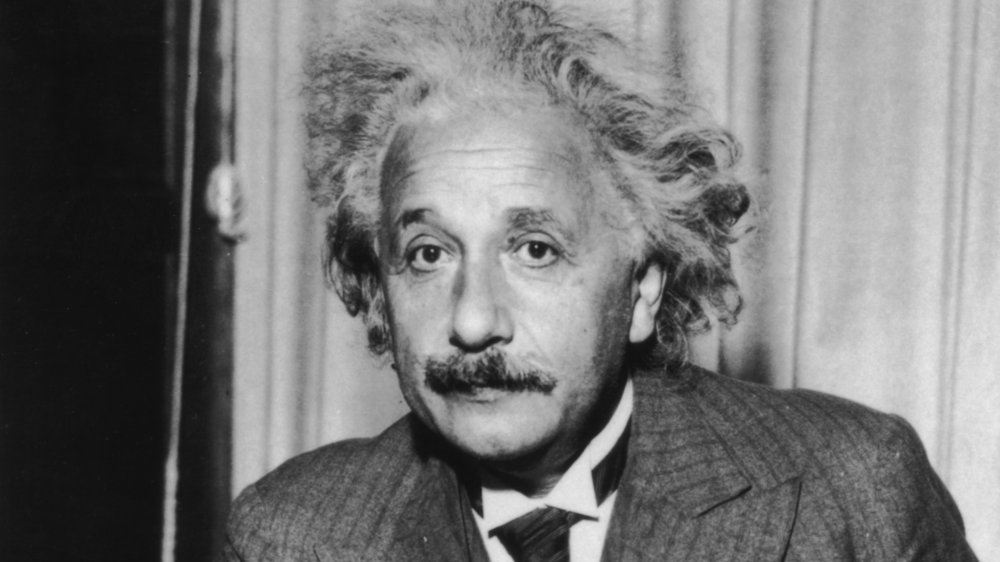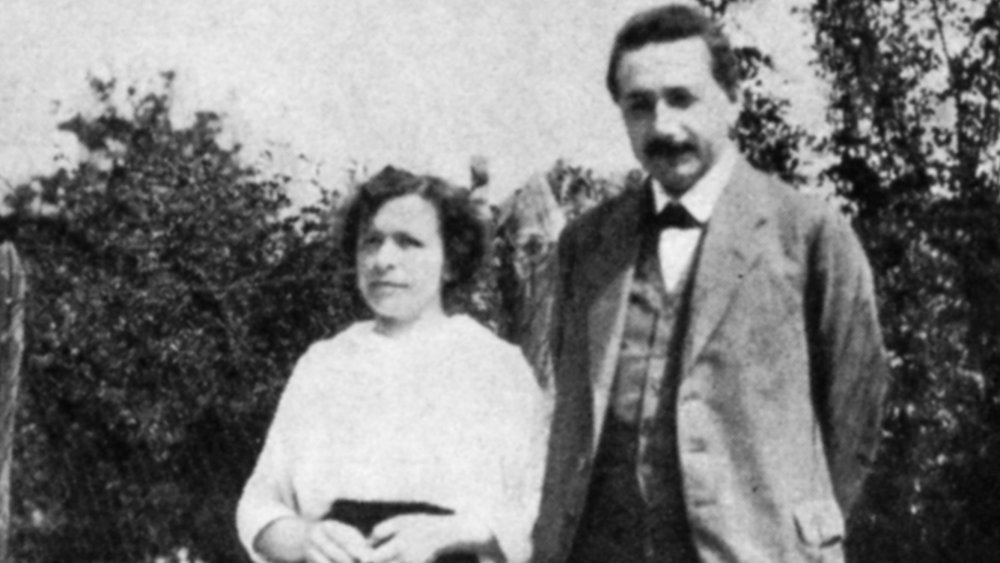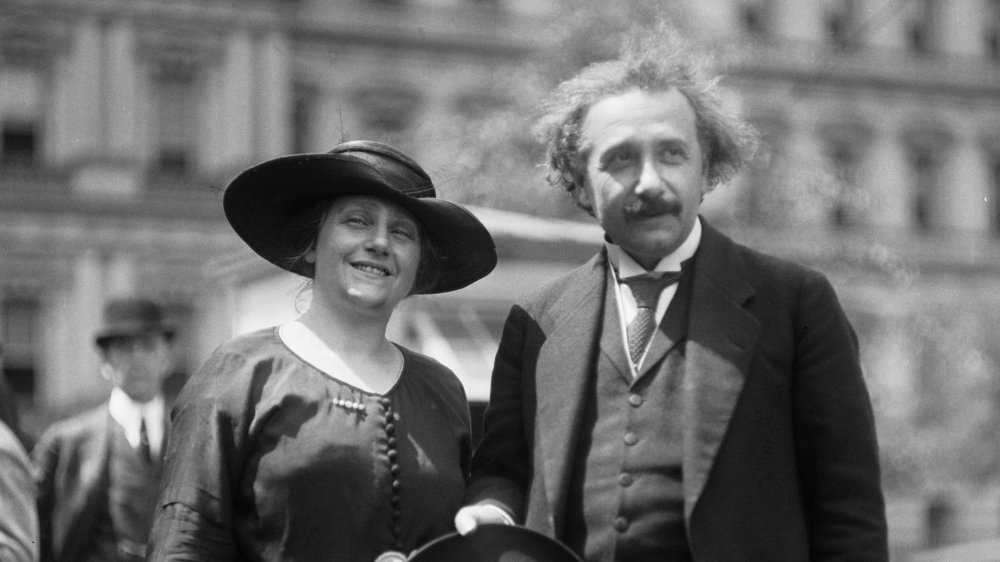The Dark Side Of Albert Einstein
You know when someone is smart, you call them a regular Einstein? That's because our definition of genius is Albert Einstein. While we rightly celebrate Einstein as the foremost practitioner of modern physics, we must also acknowledge that he's a human being who's done some terrible things. Although Einstein was a genius, he was also not a good husband who may have contributed to a system that denied his wife respect as a scientist in her own right.
Einstein met his first wife, Mileva Marić, while they were both students at the Swiss Polytechnic Institute in Zurich. She was the only woman in their class. Both wanted to study physics. They became friends, eventually falling in love. According to Nature, the two were evenly matched, with comparable scores in exams. Einstein's letters to Marić talked about relative motion and molecular forces.
Growing up in a wealthy family, Marić had already advanced academically. Her father gained special authorization from the Minister of Education in Serbia to let her sit in on classes reserved for boys. Scientific American wrote that friends described Marić as brilliant but quiet. She was determined to graduate with a degree. But Marić, who wanted to get a diploma to teach physics and math to high school students, failed her exams and was denied a certificate. In 1902, she fell pregnant, despite being unmarried. The baby was probably given up for adoption. In those times, this hurt her chances for the diploma she wanted so badly.
He put it in writing that he could order her to be quiet
Einstein and Marić married in 1903 and had another baby the following year. She settled into more housewifely duties and largely abandoned pursuing a degree. By 1905, Einstein's papers became famous, and he began taking on more academic roles.
Marić chose to devote herself to her family, but according to Scientific American, there's a strong possibility she helped develop many of Einstein's theories. The two had co-authored several papers as students, though submitted only with Einstein's name. As a trained physicist, she could be a sounding board for her husband. Einstein's letters to her also frequently used the pronouns "ours" and "we" when referring to theories. Nature pointed out, however, that claims that Marić had a hand in helping create the Theory of Relativity or something like that are flimsy.
Either way, Marić and Einstein had a quiet marriage. She gave birth to their second son Eduard in 1910 and moved with the whole family when Einstein got teaching positions. Things fell apart by 1912. Einstein reconnected with a first cousin, Elsa Lowenthal, and began an affair. Marić demanded he stay with the family, and he did — but with conditions. The New York Times reported Einstein wrote to Marić that he would remain provided she lay out his clothes, fix him three meals a day, shut up when told to, and leave when ordered. He also told her she must renounce all personal relationships with him.
His next marriage wasn't all that great, either
Einstein's callousness as a person even extended to his sons. In 1914, Einstein moved to Berlin to be closer to Elsa. At first, the family moved with him, but Marić had enough and moved back to Zurich. Einstein stayed in Berlin and decided his role in his sons' lives was to send money to the family. The idea was that if Einstein won the Nobel Prize, all the money would go on a trust for the boys. Marić only had access to the interest and could not touch the money itself. Scientific American said Marić always believed she had every right to Einstein's prize winnings because of her contributions to his work.
The two divorced in 1919. Einstein married Elsa, though even that marriage became unhappy. Einstein started sleeping with younger women despite staying married. The New York Times explained Einstein saw his marriage to Elsa as one of convenience.
Einstein and Marić's son Eduard soon suffered a mental breakdown and had to be institutionalized. Marić stayed in Zurich to care for him, using money from the Noble Prize to buy real estate as an investment. By the time Einstein died in 1955, he had not seen Eduard for 30 years. There is no denying Einstein was a genius. But he was also a terrible husband who wasn't meant to live a domestic life. So, let's agree he's a human being first, genius second.


